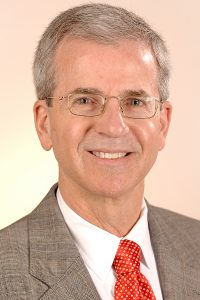BUSINESS JOURNALS
Friday, September 25, 2009
South Florida Business Journal – by Brian Bandell
South Florida’s largest nursing home, Miami Jewish Home & Hospital for the Aged, is undergoing a name change that will emphasize its expanding line of health programs.
Starting in October, the 69-year-old organization, which has about $100 million in annual revenue, will become Miami Jewish Health Systems. The nonprofit will launch a marketing campaign using the new name to let patients know that people of all ages are treated there. MJHS especially wants that message heard by patients who could use its growing pain management center and memory disorder center.
 The changes at the organization must be financial, not just cosmetic. MJHS loses about $8 million annually on its 462-bed nursing home business because Medicaid – the primary payer – reimburses less than the cost of care, MJHS CEO Jeffrey P. Freimark said. Compounding the problem, the recession has hampered its charitable fundraising operations.
The changes at the organization must be financial, not just cosmetic. MJHS loses about $8 million annually on its 462-bed nursing home business because Medicaid – the primary payer – reimburses less than the cost of care, MJHS CEO Jeffrey P. Freimark said. Compounding the problem, the recession has hampered its charitable fundraising operations.
“It’s a huge challenge,” Freimark said. “We’re trying to reposition ourselves to be more financially stable. We’re focusing on our cost structure and driving more revenue to offset the nursing home losses.”
Freimark joined MJHS a little over a year ago from the private nursing home industry. Over the past four months, he has revamped the organization’s executive team with people who have for-profit experience.
Part of his money-saving initiatives included outsourcing rehabilitation, therapy and security positions. MJHS now has about 1,300 employees and 200 to 300 independent contractors. He also canceled its lease on the money-losing deHoernle Alzheimer’s Pavilion in Deerfield Beach and found other treatment centers for those patients.
Yet, Freimark said the organization can’t cost-cut its way to prosperity. It must grow in areas that pay well and improve its quality of care. That means becoming more of a “virtual campus,” rather than a home for long-term care, he said. Already, about 3,000 of the 3,700 people MJHS cares for each day aren’t living in nursing homes or assisted living on its campus.
A second PACE center
The number of off-campus patients should grow by 200 to 300 when MJHS opens its second PACE (Program of All-Inclusive Care for the Elderly) center by November. Located in Hialeah, the center will bus in elderly patients who need daily assistance, but are still able to live independently in their homes.
MJHS is the exclusive PACE provider for the federal government in Miami-Dade County. It gets a fixed stipend for each patient, which means it gets rewarded when the patients receive efficient care.
MJHS spokesman Blaise Mercandante said the organization plans two more PACE centers in Miami-Dade, plus one in Broward County. The main holdup is navigating the time-consuming federal approval process. The organization has already demonstrated that PACE costs less for Medicaid than nursing homes, he added.
Targeting the Hispanic population in Hialeah with a new name is a good move for MJHS, but it must revamp its nursing home so it’s not a loss leader, said Michael Dane, executive director of the industry advocate Florida Assisted Living Coalition. It could reduce the number of long-term care nursing home beds and convert them to outpatient rehabilitation for underserved ailments, such as cardiovascular disease, eating disorders or psychiatric, he said.
Dane said MJHS would do well if it opened the Douglas Gardens Hospital on its campus – which mostly serves the elderly residents there – to the surrounding community.
MJHS hopes to bring more patients to campus for its pain management and biofeedback programs. Those often deal with people covered by workers’ compensation insurance.
Dr. Elsayed Abdel-Moty, director of the Rosomoff Comprehensive Pain Center at MJHS, said that patients come there from around the world to recover from injuries and overcome pain. It specializes in weaning patients off pain medication and getting them back to work.
In order to expand, Abdel-Moty has his center concentrating on preventing injuries in the workplace. This is done by on-site visits and training where managers are taught how workers – including desk dwellers, who can suffer from repetitive motion injuries – can avoid injuries, he said. It will also screen applicants for physically demanding jobs to make sure they can handle it.
The expansion at MJHS’ memory center has focused on adding new programs for people suffering from Alzheimer’s disease and their caregivers. It recently launched support groups of this population. Dr. Marc E. Agronin, medical director for mental health at MJHS, said this will bring more patients to the campus so they can experience the quality of the treatment there.
MIAMI JEWISH HEALTH SYSTEMS
CEO: Jeffrey P. Freimark
Web site: www.mjhha.org
Address: 5200 N.E. Second Ave., Miami 33137
Phone: (305) 762-1379
E-mail: jfreidmark@mjhha.org
bbandell@bizjournals.com | (954) 949-7515







 See More Blogs
See More Blogs
Comments